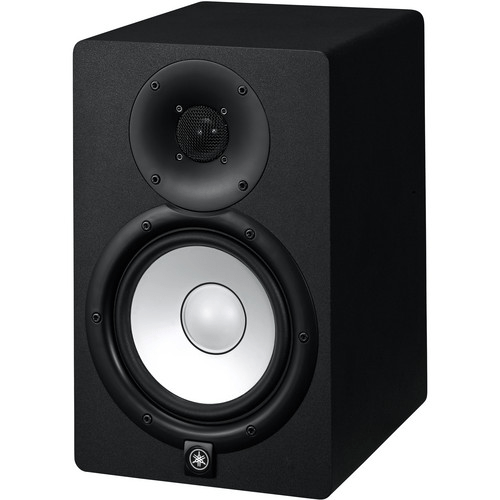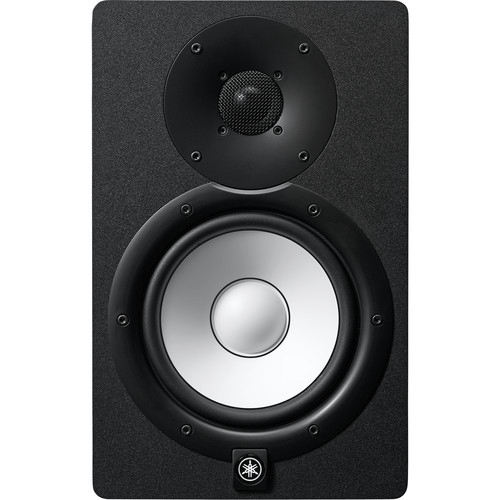
Yamaha HS7 Powered Studio Monitor (Single, Black)
by Yamaha
SKU HS7
Save $87.00
Original price
$349.99
Original price
$349.99
-
Original price
$349.99
Original price
$349.99
Current price
$262.99
$262.99
-
$262.99
Current price
$262.99
The HS7 Powered Studio Monitor from Yamaha is a bi-amplified monitor that is designed for accurate sound reproduction. It is capable of up to 95W of total output and features a 6.5-inch woofer and a 1-inch tweeter with waveguide that can produce frequencies up to 30kHz. The HS7 has both an XLR and 1/4" TRS input that accept either balanced or unbalanced signals for integration into a variety of studio setups.
Low Resonance Enclosure Design
HS Series cabinets are designed to eliminate unwanted resonance and increase the accuracy of sound reproduction to their extreme limit. The enclosures are constructed from a dense MDF with a damped acoustic response. HS Series engineers also employed a traditional three-way mitered-joint technique. Common to architectural design, this construction firmly anchors the corners of the enclosure to improve durability and eliminate unwanted resonance that can influence overall sound
Noise Reduction Technology
Speaker port design can greatly influence the clarity of overall sound. Often a vortex at the either end of the port can generate air vibrations inside of the port, causing unwanted noise. By adopting a noise reduction technology that incorporates an analysis of a visual representation of the sound, Yamaha's engineers are able to control and reduce the vortex. Through this analysis Yamaha has arrived at a port design that reduces noise up to 6dB
Controls and Connectivity
HS Series full-range models feature two response controls with settings that allow them to adapt to the surface acoustics of rooms of varying shape and size. ROOM CONTROL allows you to attenuate the unnatural, exaggerated low-end that can often occur when speakers are placed next to walls, while HIGH TRIM allows for more flexible control of high frequency response. For inputs, HS full-range speakers can accommodate a range of balanced and unbalanced sources such as mixers, keyboards and audio interfaces with XLR and TRS phone jacks



